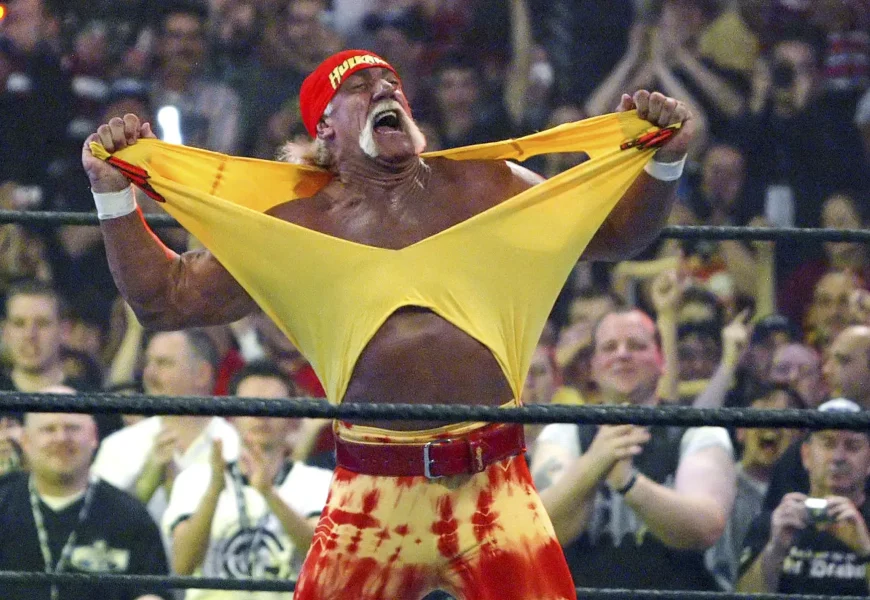The opening chords of Rick Derringer’s hard-rock guitar would play over the arena sound system. Instantly, 20,000 Hulkamaniacs – and many more as wrestling’s popularity and stadium size exploded – rose to their feet in a frenzy to catch a glimpse of Hulk Hogan storming toward the ring.
Hulk Hogan descended upon American culture at exactly the time it was ready for him: the 1980s
The opening chords of Rick Derringer’s hard-rock guitar would play over the arena sound system. Instantly, 20,000 Hulkamaniacs – and many more as wrestling’s popularity and stadium size exploded – rose to their feet in a frenzy to catch a glimpse of Hulk Hogan storming toward the ring.
His T-shirt half-ripped, his bandanna gripped in his teeth, Hogan faced ’em all in the 1980s – the bad guys from Russia and Iran and any other wrestler from a country that seemed to pose a threat to both his WWF championship and, of course, could bring harm to the red, white and blue.
His 24-inch pythons slicked in oil, glistening under the house lights, Hogan would point to his next foe – say “Rowdy” Roddy Piper or Jake “The Snake” Roberts (rule of thumb: In the 80s, the more quote marks in a name, the meaner the wrestler) – all to the strain of Derringer’s patriotic “Real American.”
In Ronald Reagan’s 1980s slice of wishful-thinking Americana, no one embodied the vision of a “real American” like Hulk Hogan.


